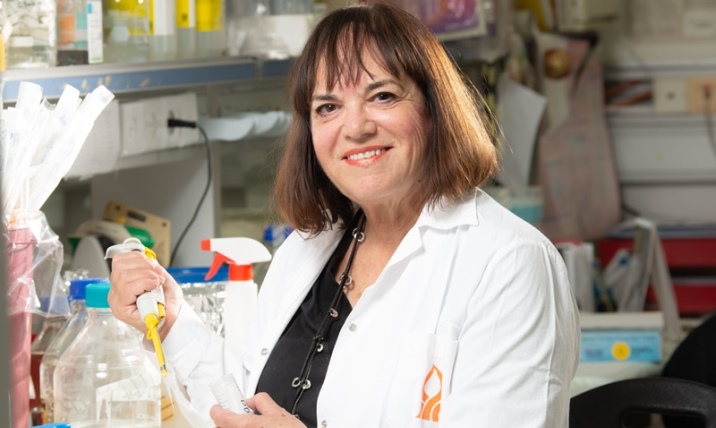In a world first, a team of BGU scientists have discovered the biological function of a peptide as a protein kinase inhibitor. That discovery could lead to a class of better cancer drugs.
Their findings were published in the prestigious peer-reviewed journal PNAS (Proceedings of the National Academy of Sciences of the United States of America).
As scientists discover more about the importance of messenger RNA, new fields of inquiry arise. In general, each of the mRNA in our body codes for a major protein with unique functions. Recently, bioinformatics showed that about forty percent of mRNAs contain, in addition, sequences that may code for short peptides in a region that was previously considered as “non-coding". But, unlike the functional proteins translated from the mRNAs, it was not clear if the short peptides had a function.

Now, Prof. Etta Livneh (pictured above) and her colleagues have isolated and proven the role of a single short peptide - it serves as a kinase inhibitor. Through mouse models and human cells, she and her colleagues demonstrated that this peptide inhibits cancer cell survival, tumor progression, invasion, and metastasis.
Proteins (especially protein kinases) propagate signals in cells dictating cell fate (we have more than 500 human kinases). Their inhibitors block the kinase enzyme which carries instructions to the cell. For instance, if the kinase signals to a cancer cell to divide and reproduce, then inhibiting the kinase would slow down the proliferation of cancer cells.
"Clearly demonstrating the role of this peptide is just the tip of the iceberg," says Prof. Livneh about her groundbreaking discovery that was a decade in the making. "Now that we know that at least some peptides have a biological function, we can begin to discover the roles of many more."
In an interesting twist, when the gene from which this peptide originates was grouped into a family for classification, it was given the Greek letter Eta – which just so happens to be Prof. Livneh's first name.
Prof. Livneh is a member of the Shraga Segal Department of Immunology, Microbiology, and Genetics in the Faculty of Health Sciences at BGU. She collaborated with Prof. Esti Yeger-Lotem from the Department of Clinical Biochemistry and Pharmacology and Prof. Moshe Elkabets in the Faculty of Health Sciences, and other BGU researchers from the Departments of Life Sciences and Computer Sciences in the Faculty of Natural Sciences.
Additional researchers include: Divya Ram Jayaram, Sigal Frost, Chanan Argov, Vijayasteltar Belsamma Liju, Nikhil Ponnoor Anto, Amitha Muraleedharan, Assaf Ben-Ari, Rose Sinay, Ilan Smoly, Ofra Novoplansky, Noah Isakov, Dr. Debra Toiber, Chen Keasar.
The research was supported by The Israel Science Foundation (Grant No. 2368/19).
Media Coverage:
JPost
Israel 365 News
Israel21C